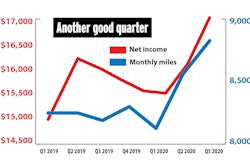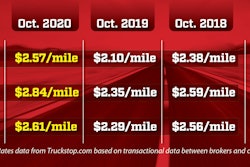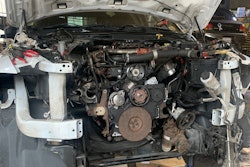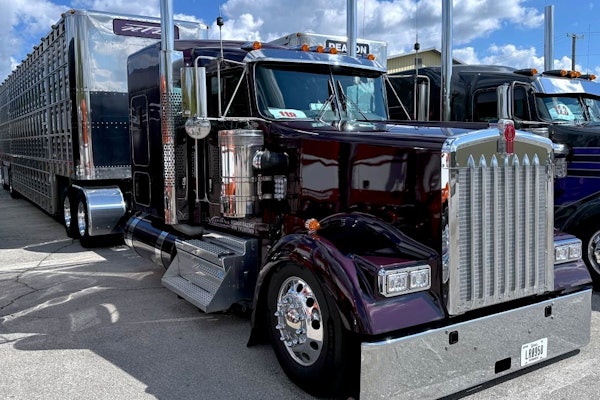 Owner-operator Al Montano runs CDR Transportation Services out of Houston. He’s pictured here with his 2007 Freightliner Classic.
Owner-operator Al Montano runs CDR Transportation Services out of Houston. He’s pictured here with his 2007 Freightliner Classic.The last time Overdrive caught up with owner-operator Al Montano in June, the specialized equipment hauler had just spent about $2,000 to outfit his two trucks with the Continental VDO Roadlog ELD system. That was in February. In April, he got a notice the company was shutting down service for the VDO, and that he’d have to find another ELD provider — which would be his fourth in two years. The story of his ongoing ELD saga is documented in this dive into the ELD market published in July.
Now? Montano’s back on KeepTruckin’s ELD, which he transitioned to since he was familiar with the platform, having used it in the past. Plus, KT was offering VDO users a discount — half-off its annual service for a year.
Though Continental didn’t refund Montano in full, he says he did receive about a third of his money back — $600 or $700, he said, partially for equipment purchases and partially for prepaid ELD service. “It is what it is,” Montano said.
Likewise, Montano’s business has been hit hard by the COVID-19 economy. “It’s been terrible,” he said, noting he had to lay off his other driver recently. He’s drummed up some business from brokers and, in one case, directly with a shipper, but he won’t work for cut rates, he said, and he’s content passing on loads that don’t pay what he asks.

“I have my rates in place,” he said. “If I don’t get that [price], then I don’t move that load. I know what the market rate out there is, and I know what it costs me to move a load. Sometimes, the brokers say my rates are ridiculous. Well, it’s not ridiculous — it’s what it costs. I don’t care that if they pay me that then they’re not going to make any money,” he said of the broker.
He encourages other operators to do the same — set their rates and stick with it.
Also, he encourages truckers to consistently ask brokers before they finalize a load booking to disclose what price the shipper paid for that load. That issue — of broker transparency and what the law requires of brokers in terms of disclosures when asked — has bubbled into something of a national dialogue around the issue, with even those at the highest level of the federal government hearing truckers’ concerns on the topic.
“The law is right there,” said Montano, referring to 49 CFR 371.3 of the U.S. code, which requires brokers to keep records of every freight transaction, giving shippers and carriers the right to review them, most often interpreted as after the fact of the load being booked.
“They’re supposed to provide that information,” Montano added. “As a trucking company and as a contractor, you have the right to take advantage of that and have the broker submit that info to you. It’s up to you.”
More widespread use of that provision by truckers, he contends, would make the practice standard and rates negotiations more fair. “If everybody in the transportation industry does the same thing and goes by the books and requests that information — and they do not move any freight without having that information — a lot of things would change,” he said. “But if everybody’s just taking freight for whatever price and not asking questions, nothing is going to change.”
On his recent shipper-direct loads, he had called the shipper directly after talking to several brokers about that shipper’s loads. One of the brokers had told the shipper that he couldn’t find a truck to haul it, said Montano. “That’s just a lie,” he said. “I know four or five guys who would be willing to take that load out of the Houston area. But the broker didn’t want to pay anything for it, so it sat there for two weeks, and they were telling the shipper they couldn’t find a truck.”
Not exactly illegal, and run of the business for a broker working shippers for higher rates and truckers for lower rates.
Nonetheless, “I called the shipper up and and gave them my rate and I was able to move it directly,” he said.











